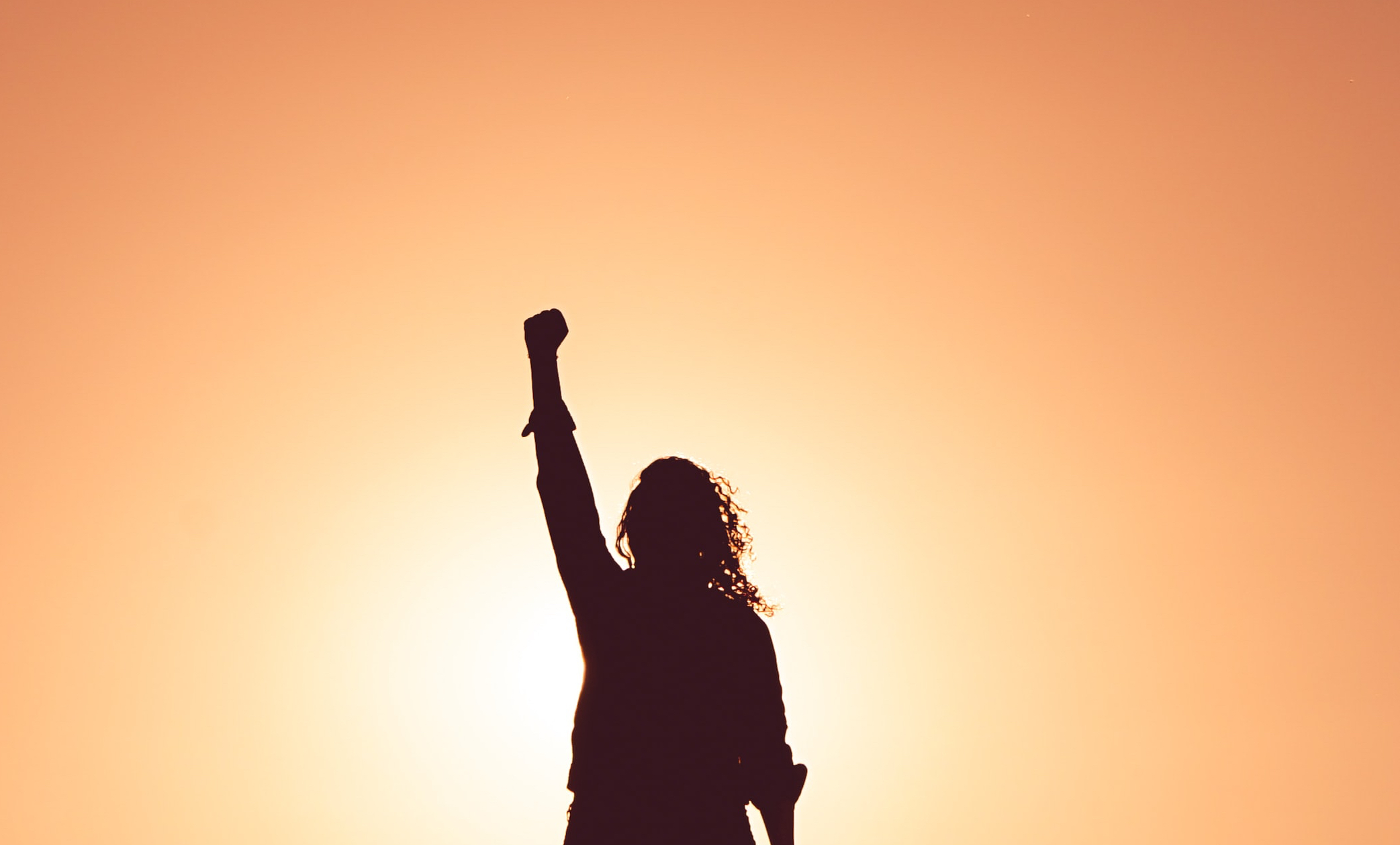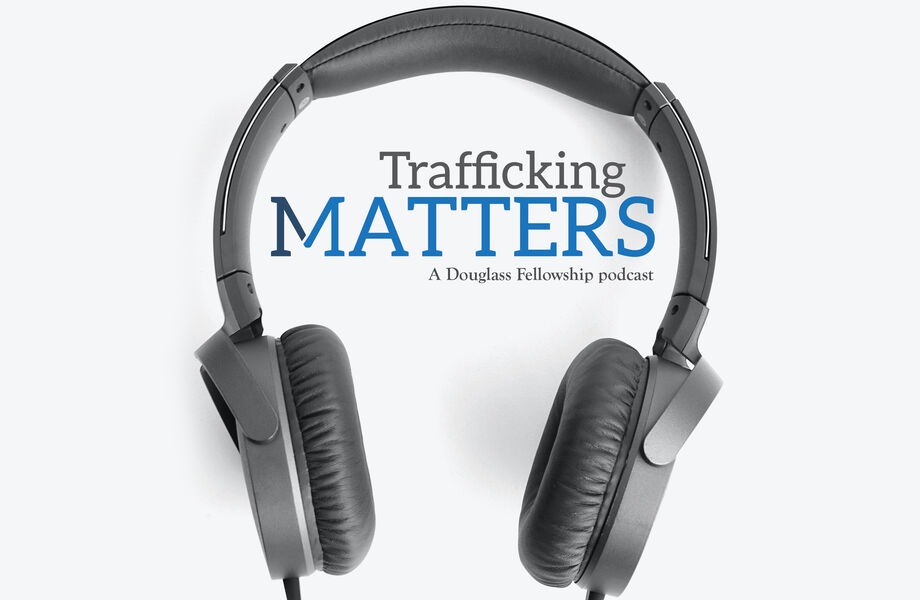Taushia Chacon is an empowered woman and devoted mother. She is also a sex trafficking survivor. In August 2020, her trafficker was sentenced to life in prison and ordered to pay almost $2 million in restitution and fines after being convicted on 13 counts of human trafficking-related charges. Justice has been served, but Taushia’s recovery endures.
Sarah Byrne leads Moore & Van Allen’s Human Trafficking Pro Bono Project in Charlotte, North Carolina. Taushia was referred to Sarah for legal services in 2017 after reporting her victimization to law enforcement. Over the years, the two women have discussed the need to raise awareness about survivor legal needs in order to ensure success in both the criminal process and, more importantly, in survivor well-being.
Taushia and Sarah sat down to share their story in the hopes of inspiring similar partnerships.

Sarah: Having been involved in the representation of many human trafficking survivors in their various legal needs, I have become even more convinced that every survivor needs and deserves their own pro bono lawyer. I believe that our work for Taushia demonstrates how comprehensive legal representation facilitates positive outcomes.
Sarah: Taushia, before we met, how did you feel about the legal system?
Taushia: I did not trust anybody. I did not trust the police; I did not trust the judges. It just felt like the system had failed me, so they were going to continue to fail me. The fact that I had a really troubled childhood, didn’t really have family support, and that I was abused both sexually and physically when I was a child and then this [the trafficking] happened. It made me feel ashamed. I felt nasty, I felt disgusting. I didn’t really want to speak to anybody about it. I didn’t trust law enforcement. I just didn’t know what they were going to do with the information I was giving them. I just was really, really scared. When I thought about going to the police I thought, “Are they going to help protect me or are they going to hurt me?” A lot of victims aren’t going to speak. They’re very scared. They’ve been told that if they speak to the police they are dead, or something is going to happen to their family.
Sarah: Those feelings must have changed as you saw the trafficker face a life sentence and knew you were an integral part of that process as a victim-witness. When did you first feel supported in the investigation of the man who trafficked you?
Taushia: It all started with the investigator. He would give me information about what was going on about the process. The fact that he kept letting me know what the next step was, what to expect, and the time frame – that’s what really helped me the best.
Sarah: Did that sense of support that started with an understanding investigator ever wane?
Taushia: Oh, yes, it did – when the first prosecutor was assigned to this case. That prosecutor was looking at me as though I was the perpetrator. I feel like he didn’t believe what I was saying; like he was already blaming me the moment I walked in those doors. It felt like his eyes were on me and asking why I was coming forward. That’s when I decided I didn’t want to continue. I was going to give up, I was ready to run away.
Sarah: But then a different prosecutor stepped in; one who believed your story; one who knew the very complicated psychological exploitation involved in sex trafficking. She saw you as a victim and only a victim. So, you felt understood by the investigator, and then the prosecutor. How did having a lawyer fit into your development of trust for the legal system?
Taushia: I probably would not have been as willing to talk about what happened if I didn’t have a lawyer. I would not have been willing to meet with the prosecutors as many times as I did because I would have been going it alone if I didn’t have a lawyer. You, as my lawyer, knew the legalities, you knew my rights, and you were there to protect me and my rights, especially when we would get papers sent. There’s a lot of legal garb that I did not understand.
Sarah: How did we build that trust?
Taushia: Regardless of whatever my choices have been, you have advised me where you needed to and left my choices up to me. Also, I felt no judgment from you. You truly set out to just help. What really did it for me was the fact that you would speak a lot about my children and ask about them. Anybody who’s doing pro bono must do it because they truly just want to help, and not judge. Lawyers who do this need to be authentic. If your heart is not there, if you’re not passionate about it, don’t do it. You can do more harm than good.
Sarah: One of my primary goals in this work is to increase the number of survivors who have a pro bono lawyer. Part of that effort is getting the word out about how impactful this can be. Will you share why having a pro bono lawyer has been so valuable to you?
Taushia: It’s the only way I’m able to fix anything in my life – the legal aid. Survivors have criminal charges, they have civil needs, and then they’ve just got a whole lot of trust issues with the justice system. If I didn’t have legal assistance, I would not have been able to get my children back. That was just so key to me moving on and getting back into society. It’s not just me fighting for myself anymore, and that’s what really helped. That help has been exponential for me.
Post-interview thoughts from Sarah:
This conversation highlights the many obstacles survivors face in seeking independence after their victimization. Pro bono representation is the only way to remove many of those barriers.
Together, as a team of lawyers with Taushia directing us, we:
- Cleared up a criminal record she incurred during her victimization;
- Resolved child custody matters;
- Advocated for Taushia’s rights in accessing support services;
- Clarified her role as a victim and not a perpetrator;
- Facilitated access to financial services despite bad credit history resulting from hospital bills when the trafficker assaulted her; and
- Prepared Taushia for her role in the trafficker’s trial and sentencing.
These are all pieces to a puzzle put together to help Taushia’s independence and wellbeing – which is justice, as defined by this courageous survivor and her lawyer.




